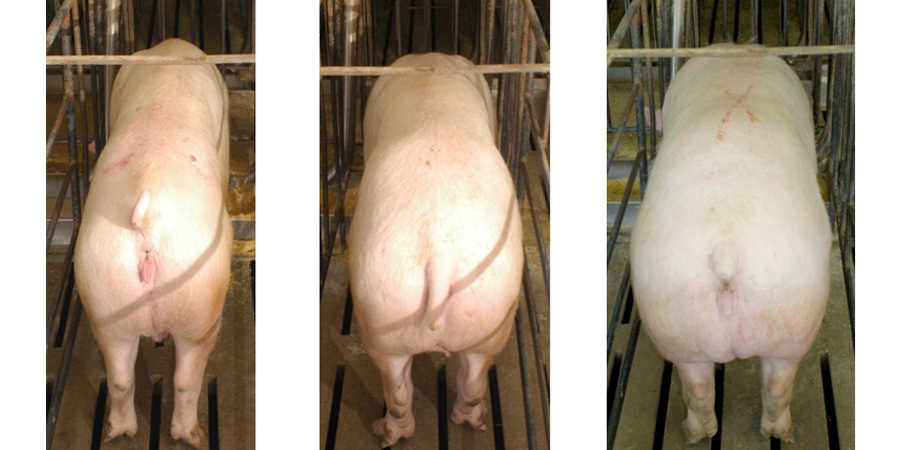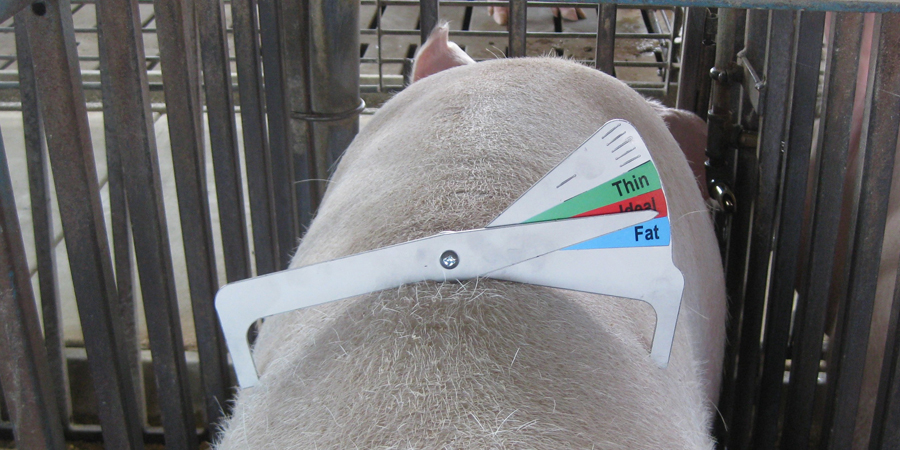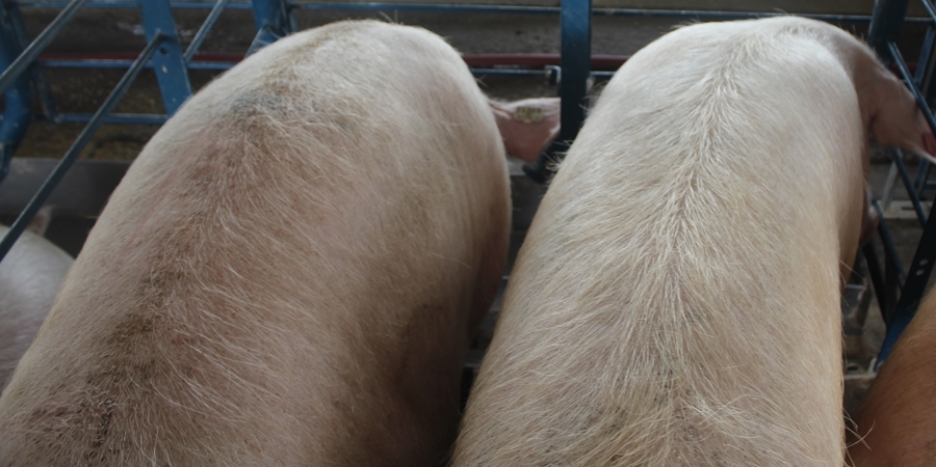Think of it as being similar to using a thermometer to measure temperature. If nursery managers are given a directive to set the room temperature to where the pigs are comfortable, that becomes a judgment call varying from operator to operator. If the same group of managers use a thermometer to establish a set point of 85°, then that becomes a standard temperature setting across the system.

The Sow Caliper is the same type of tool. What an individual on one farm considers as proper sow body condition could score as under or over in another herd. The Sow Caliper establishes a constant measurement of sow body condition across a production system no matter the experience level of a farm's labor.

The concept behind the sow caliper relates to how, as the sow gains weight, the shape of her back changes. By placing the Sow Caliper on the last rib of an animal, a simple dial reading quickly indicates her body condition score.
It's really about profitability. Well-documented studies report low body condition contributes to lameness, shoulder lesions, and general poor sow welfare while over conditioned sows increase feed costs and suffer lower reproductive performance.
In one comparison in eastern North Carolina, two farms with similar facilities and the same genetics and feed reported a marked difference in profitability. The sows Farm B averaged 59 pounds heavier than the sows in Farm A. Using the assumption of 4.5 pounds of feed per pound of gain; Farm A showed an advantage of $19.09 in lower feed costs. Also, the heavier sows in Farm B weaned .24 fewer pigs per farrowing with a pig value of $35.00, giving Farm A an additional $28.35 advantage in wean pig revenue. The heavier sows in Farm B had an increased cull sow value of $14.85.
Feed Costs Saved $19.09
Wean Pig Revenue $28.35
Cull Sow Value ($14.85)
Profit Difference/ Sow $32.59
Developed by Dr. Mark Knauer at North Carolina State University the Sow Caliper is currently in use in 27 states in the U.S. and over 30 countries worldwide. For more information and to order, contact Dr. Knauer at mtknauer@gmail.com.












 Україна
Україна Méjico
Méjico



